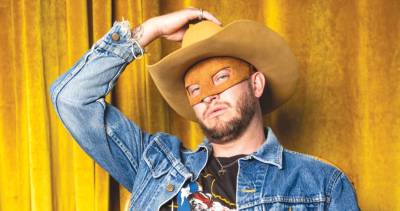Angélique Kidjo travels to Benin and back again
Angélique Kidjo is based in New York and performs around the world, but her West African roots are still her biggest inspiration.
It’s been an unusually busy year for New York–based artist Angélique Kidjo, even by her own standards. The singer from Benin, West Africa, has been crisscrossing the globe performing shows, promoting the many social causes she passionately espouses, and embarking on major new projects—an orchestral collaboration, her next album, and her autobiography.
“I spent the end of 2011 in Benin with my family,” says Kidjo, reached in Paris, where she lived for many years. “I got back to New York in mid-January and left for the opening of Carnaval Recife [Brazil]. In March and April I was in Australia and played at the Sydney Opera House. I came back, then left again for Thailand for a campaign to help eradicate polio, and once I got home I started writing songs. After that came all the summer festivals. I did a concert with the Luxembourg Philharmonic. I like classical music but don’t know much about it. The orchestra leader made the arrangements. The show was a big success, and we decided to put it out as an album. And I signed a contract with HarperCollins for my memoirs.”
Kidjo—whose full name is Angélique Kpasseloko Hinto Hounsinou Kandjo Manta Zogbin Kidjo—has always stressed the importance of her childhood. She was raised in Benin by parents with an unusually progressive outlook and impressive record collection. It was the soul and funk singers—above all Otis Redding, Aretha Franklin, and James Brown—who really fired Kidjo.
Blending their influence with rhythms from Benin, she started writing and performing her own songs. Soon after moving to Europe in 1983, Kidjo became a hot item on the world-music circuit, and chalked up a string of dance-floor hits with polished Afropop gems such as “Batonga” and “Agolo”.
In the late ’90s she and her husband and musical partner, bassist Jean Hebrail, started living—for part of every year, at least—in New York, where they began a trilogy inspired by music of the black diaspora. Oremi (1998) focused on African-American culture, Black Ivory Soul (2002) on Afro-Brazilian, and Oyaya (2004) on Afro-Latin and Caribbean. Kidjo has carved a unique place in music, with a deep understanding of the crosscurrents on three continents. At the pre-Olympics River of Sound event in London, she was one of just a handful of top artists selected for the Africa Stage.
“People say ‘la musique africaine’, but I say ‘les musiques africaines’, ” says Kidjo, speaking in rapid-fire French. “They refuse to recognize that Africa is a continent with a huge number of different cultures and languages and musics. That’s always been the difficulty of my career. People expect all Africans to have the same sound more or less, as if you can lump them all together.”
Kidjo’s own music is contemporary and proudly eclectic. Spirit Rising, her most recent album, features the suede-headed diva performing a selection of songs written with Hebrail, as well as an Africanized version of George Gershwin’s “Summertime”, Bob Marley’s “Redemption Song”, Mick Jagger and Keith Richards’s “Gimme Shelter”—on which she duets with jazz singer Dianne Reeves—and the extraordinary “Lonlon/Ravel’s Bolero”, with jazz trumpeter Branford Marsalis.
Some western critics have accused Kidjo of being insufficiently African, which she pounces on as reflecting a postcolonial condescension. She’s always drawn primary inspiration from the roots music of her homeland, and it runs deep.
“Benin has little tradition of harmony in the south, where I come from—the north has a lot more, but the south has more rhythms, which are absolutely fantastic and people don’t know them. We’re a country where people make their own instruments. There’s one village specifically dedicated to the drum. When you get there you can go and choose your tree, cut it down, and make your percussion [instrument] from it. The challenge for me is adding harmonies to the rhythms. I listen to the harmonies that the rhythms give. That’s how I’ve created my music from the start. That’s why it’s very rhythmic, though it can also be very slow.
“I come from this diversity and richness that’s Benin, where there are 50 different languages. I speak four of them. I never know in advance which language will come when I start to write. The song leads me to the language. People often think that African music must remain traditional and that this tradition is unchangeable, which means that we Africans don’t have the right to evolve, to become modern. Because it has grown with all the people who listened to it as well as those who played it, I say that traditional music is the ancestor of our life—always.”
Angélique Kidjo performs at the Chan Centre for the Performing Arts on Saturday (October 13).















Comments